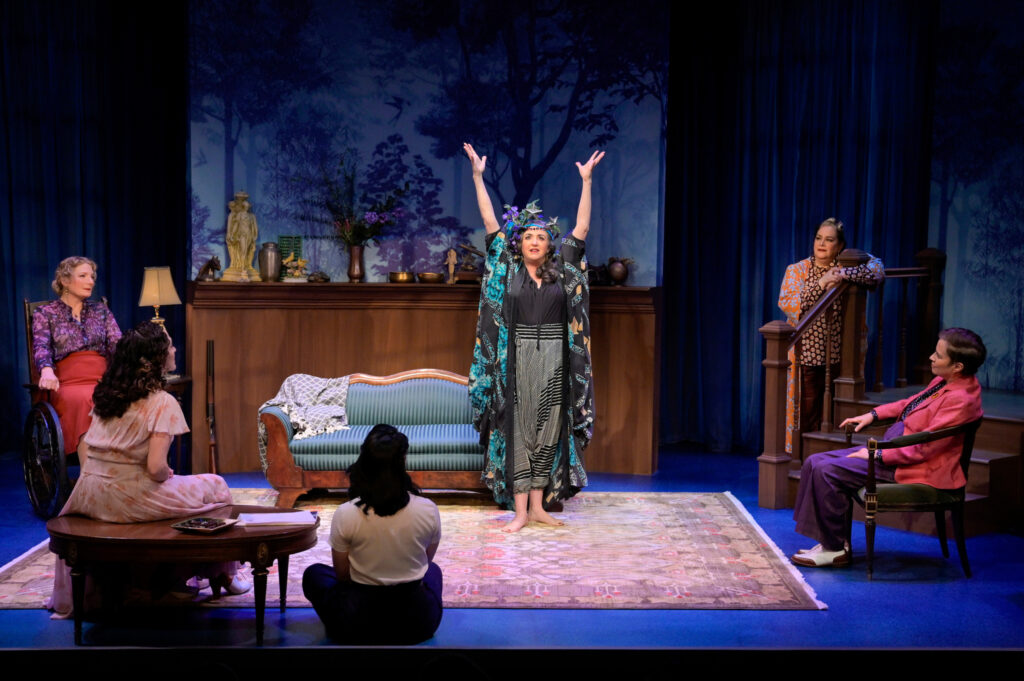Community, Leadership, Experimentation, Diversity, & Education
Pittsburgh Arts, Regional Theatre, New Work, Producing, Copyright, Labor Unions,
New Products, Coping Skills, J-O-Bs...
Theatre industry news, University & School of Drama Announcements, plus occasional course support for
Carnegie Mellon School of Drama Faculty, Staff, Students, and Alumni.
CMU School of Drama
Tuesday, September 13, 2022
Here are just some of the ways theater depends on 'women's work,' often unpaid
Datebook: In honor of Labor Day, I got to team up with five female photojournalists at The Chronicle to explore the notion of women’s work. The team followed five Bay Area moms for an entire day each to document their paid and unpaid labor, which got me wondering about the unpaid women’s work of theater.
Subscribe to:
Post Comments (Atom)

5 comments:
A really nice thing about coming out of COVID, or at least the era of quarantine, is seeing awareness rise for the toll that emotional labor can take and how important it is to consider that a very real part of one’s job description. It is directly tied to mental health, and is a shared responsibility of everyone in theatre, which is why it is unfair to expect the bulk of the emotional labor to be done by women. The way that women have often been expected to be more empathetic and understanding of others’ needs, to the detriment of their own feelings, has long been overlooked. In theatre, which can so easily lead to burnout, it is even more vital that this burden is not unfairly placed on women. Minimizing gaps in expectations will lead to a more safe working environment, not to mention an easier launchpad for art to thrive.
It’s very different to know that something is going on and being *aware* that it is. I knew that theater – especially for performers – is all about appearances. I knew that women must spend more time and effort than men. For some reason, however, it wasn’t until I read that bit about getting ready in the car that made me saw the reality of it. I don’t have many anecdotes of my own, but I’m sure it is a common occurrence that the men’s dressing room always gets emptied before the women’s at any given show. And, like it was mentioned, women do not get paid extra for this labor. It sounds silly at face value to be paid for curling your hair, but it is work. Being needed or expected to look a certain way should be part of the budget. And I’m only talking about the physical act of getting ready; there is so much more that is not covered to the very least financially.
I clicked on this article because female representation is really important to me in theater. In high school I would watch all these girls get ready 4 or more hours before call time while the guys would walk in 5 minutes before call time and be ready to go. Yet guys in theater get so much praise while I feel like so much more is expected of women in this industry. In this article it talks about how women are expected way more of them then men are in this industry. It's really interesting how this expectation is brought onto women while they are not getting paid as much as men. They also talked about how women are exempted to coodle in this world and take care of others while men just show up. Women Have such a bigger expectation in theater whether it be physical appearance or mental appearance they are expected so much more than men.
Female representation within theatre is a pretty tricky thing. I remember hearing from someone that a lot of the skills that are used within the theatre industry are expected by woman but become careers for men. I do think that women have to put in more to get the same outcome as men do in the industry and I love how this article put these issues in more terms than just the money. Women have to look presentable and put in more money to look presentable. Even in the tech side women get told (I have many times before) that they look tired or exhausted when they aren't wearing makeup. Women are expected to be better mediators and not put too much input within a meeting, rather soothe disagreements that are happening. While women still are paid less than men, there are also 10 other ways that women are treated less than or "paid" less than in terms of.
I think this article is something really important that we are not talking about often enough. There is certainly a gender divide within the theater industry that is looked over and it’s unfair to the women who feel like they have to meet the certain needs. I find myself fire falling into this habit as well of just trying to take care of everybody around me and it often leads to me forgetting to take care of myself. The way they bring up that we are not emotionally compensated or financially compensated for this extra work that we’re putting in it’s really quite devastating. I hope them in the future we can reach a certain quality because it is important to care about those who are around you but it should not be just one group who is caring well everybody else is receiving. And as an industry we need to allow people to put themselves first in some situations so that they continue on in the industry for as long as they choose.
Post a Comment